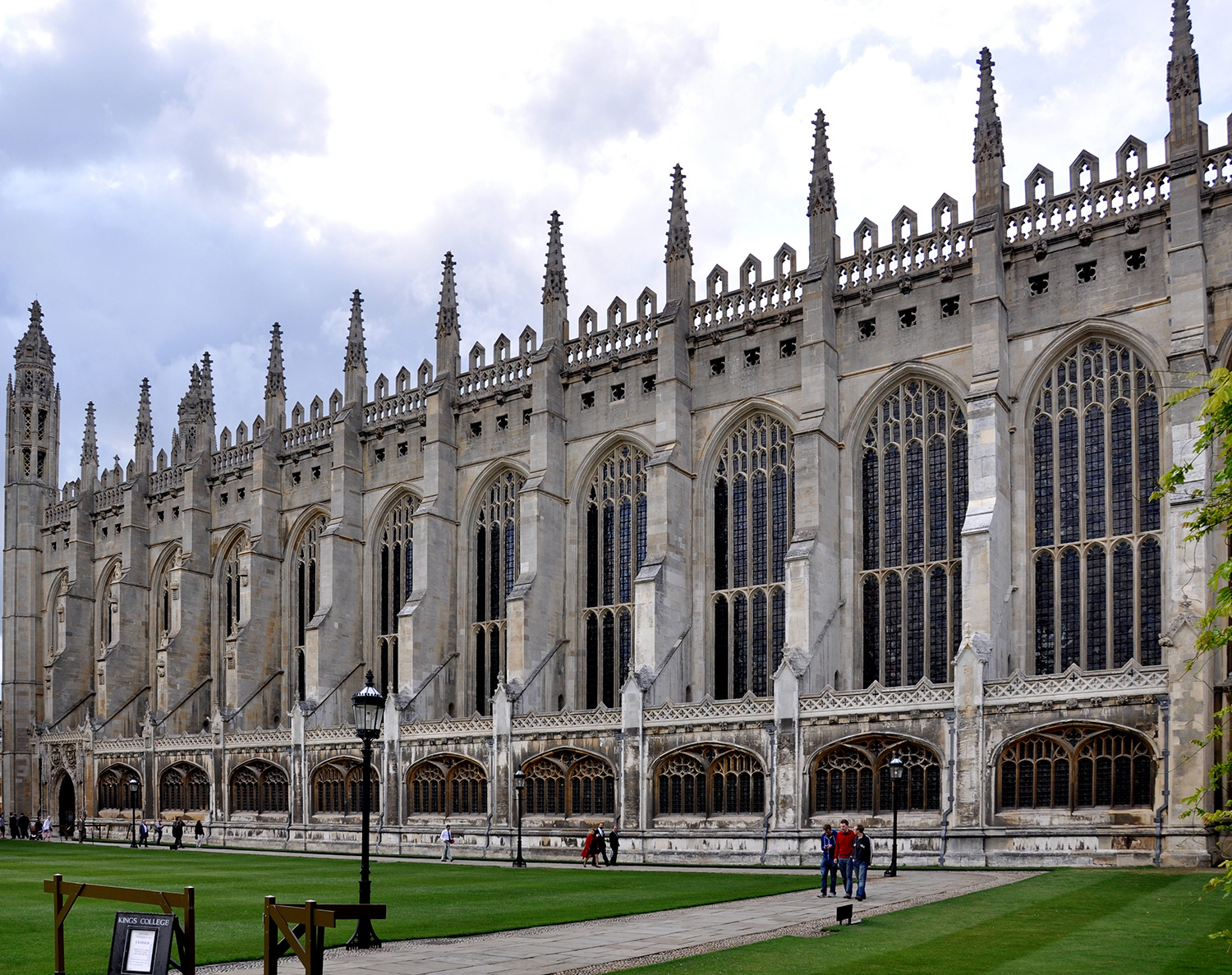King’s College London
King's College London is located in on the north bank of the Thames, off the Strand in central London. REQUEST INFORMATION
KEY INFORMATION:
It is a constituent college of the University of London. London is the capital city of Great Britain, and has a population of 8.3 million (or over 13 million in the wider metropolitan region). The major international airports London Heathrow and London Gatwick are an hour’s tube ride (Heathrow) or an hour’s rail journey (Gatwick) away.



UG: N/A
PG: N/A



Six steps to King’s College London
Our method to your success
FREE CONSULTATION MEETING
REPORT & INSTITUTION SHORTLIST
APPLY & RECEIVE AN OFFER
WOO HOO! YOUR OFFER IS ACCEPTED
ARRIVAL & POST ARRIVAL SUPPORT
WE ARE WITH YOU EVERY STEP OF THE WAY
LOCATION:
London is well served by underground and bus system and its major rail and coach stations offer connections to the rest of the UK as well as to France and Brussels via the Eurostar train from London St Pancras station. The average lowest temperature in London is 3 degrees in January. The average highest temperature is 22.5 degrees in July.
REQUEST INFORMATION..

Request Information - University Courses
HISTORY:
King's College London was founded in 1829 by Royal Charter from King George IV. Its establishment came about as a result of the Industrial Revolution and the resulting social changes. King's was originally a theologically based institution teaching Literature, Science and Christianity according to the doctrines of the Church of England. In 1840 the now famous King's College Hospital opened, as focus on medicine became one of the College’s priorities. In 1953 the College achieved world renown when scientists at Kings identified the structure of DNA for the first time. In 2003, King's College London was granted degree-awarding powers in its own right as a separate entity from the Federal University. In addition to science, medicine and nursing, King's has become known in latter years for the Social Sciences.
LOCATION:
King's College London consists of nine academic schools spread across four Thames side campuses all located within a one square mile radius in central London. The only other campus is in Denmark Hill nearly Camberwell in south London. This site is home to King's College Hospital, Maudsley Hospital and the Institute of Psychiatry. The founding campus is on the Strand and it is here that the Schools of Arts & Humanities, Law, Social Science and Natural & Mathematical Sciences are situated. Guy’s Campus, close to London Bridge, is the home of the Schools of Medicine, Dentistry and Biomedical Science. Waterloo Campus, across the river from the Strand, houses other buildings of the Schools of Medicine and Dentistry as well as the Florence Nightingale School of Midwifery. Finally, facing the Houses of Parliament in Lambeth, is the St Thomas campus which is where St Thomas’ Hospital is situated. The main halls of residence are located on the Strand campus. A free shuttle bus service operates between Waterloo campus and the hospital sites, otherwise travelling around campuses is easy as London is well served by buses and tube running until the early hours of the morning.
RANKING:
King's College London is ranked =35th in the Times Higher Education Rankings. King's is ranked 47th in the Shanghai Jaio Tong rankings and is a member of the Russell Group of universities.King's College London is ranked 92nd in the National Student Survey Satisfaction rankings.
INTERNATIONAL:
There are approximately 8,000 students from 150 countries currently studying at King's College London, representing 28% of all students.
SIZE:
Latest figures indicate a total student population of more than 29,000.
EMPLOYMENT:
93.2% of King's College London graduates enter directly into work, further study or training within 6 months of graduation (source:HESA). A breakdown of post graduation employment by course, showing the split into professional/managerial positions, rather than general employment figures, is available from Unistats an independent source of university data. For more information, please visit the REF Information page.
FACILITIES:
The main campus in on the Strand in the heart of London’s West end. Underneath the building there is a Roman bath and also the Aldwych underground station, which is disused, but now houses the College’s rifle range. The Strand campus is the site of two bars, a shop, gym and café.St Thomas’ campus in Lambeth is home to the Florence Nightingale Museum of Nursing and the College also owns the Maughan Library – a grade II listed 19th century former public records office in Chancery Lane. In fact, Kings College London owns seven other major libraries on its sites, housing many renowned collections. King’s’ student union is one of the oldest in England and supports 200 different societies and 50 sports clubs. The student union also produces a tabloid newspaper Roar! News.King’s central location means that access is easy to all of London’s famous landmarks, museums, theatres, galleries, shopping, restaurants, clubs, bars and nightlife.
ACCOMMODATION:
King’s College London owns a number of halls of residence on its main campus and others and it can also offer accommodation in intercollegiate halls managed in partnership with constituent colleges of the University of London. All halls of residence are situated within the central London Travel Zones 1& 2. Accommodation is guaranteed for all new first years and for all international postgraduate students. Contracts are for 40 weeks in residences owned by King's College London, and for up to 51 weeks for the Intercollegiate Halls. The King's Halls of residence are self catered whilst the Intercollegiate Halls offer catered accommodation. Cost examples are as follows:The lowest price for a single room with shared bathroom and kitchen facilities is £155.00 per week.An example price for catered accommodation is £166.88 at International Hall, in the Intercollegiate Halls.
COST:
International undergraduate tuition fee examples - BA or BSc:
Fees for full time undergraduate courses start at £20,790 for Arts & Humanities subjects, rising to £28,050 for most Business, Science & Engineering courses. Medicine - £40,800
SUBJECT AREAS:
REF (Research Excellence Framework) was an independent government review conducted into the quality of research at UK universities and published in December 2014. This information highlights subjects of specialism within each university. We have listed all subject areas where at least 60% of the research conducted in these specific fields has been graded 3 or 4 stars. (4 stars being the highest ranking REF award). For more information, please visit the REF Information page.
ONLINE COURSES:
King's College London currently offers twelve postgraduate online/distance learning courses, taught by King's world-leading academics, and have recently added to their list of subjects. Courses include: Global Finance Analytics MSc, International Affairs MA, Marketing Msc, and International Corporate & Commercial Law LLM.
LIFE AT King’s College London
We have been helping overseas students gain entrance to King’s College London for a number of years now, progressing to high profile careers in the UK. Find out more about this school below.
Review
Coming Soon
 LOOKING FOR AN ONLINE COURSE?
Our team can help you find a relevant course for your study.
BOOK A CALL
LOOKING FOR AN ONLINE COURSE?
Our team can help you find a relevant course for your study.
BOOK A CALL
DOWNLOAD YOUR FREE GUIDE TO A QUALITY UK EDUCATION
Sign up to our free Newsletter and you'll get a free copy of our guide to accessing a UK education to help you navigate the entire process.
REQUEST INFORMATION..
Get free instant access to exclusive content and join our monthly email guide
We’re with you every step of the way and will keep you updated on the latest UK education news. Find out more about joining.
